A look into how Matthew Tufts uncovers the far-flung places and far-out characters at the heart of the ski industry
It’s golden hour in the southern hemisphere. Glaciers heave and spires crumble, thundering behind a skier who slices a sharp turn into pock-marked crust. It’s a scene so visceral, so immersive, the visual becomes nearly sonic. These are the remote mountains of Argentine Patagonia as captured by photojournalist and writer Matthew Tufts.

It may have been Patagonia’s obscure lines that caught Matthew’s eye, but as with most of his projects, it was the powerful narrative that pulled him in. A storyteller at his core, Matthew is just as interested in exploring “locals with character” as uncovering the “locales with characters.” With a mix of dedication, grit, and luck, Matthew found both in El Chaltén, the gateway to Patagonia’s most formidable peaks.
To fully capture El Chaltén’s burgeoning ski community, Matthew knew he had to accept a spectrum of risks, from the objective hazards of crevasse-riddled terrain to the ego-bruising prospects of debt and failure if the project didn’t pay off. “A lot of my initial pieces were passion projects,” he explains. “I thought, look, if I’m going to establish myself, I need to go after these big ideas.”

Equipped with fresh skis and rudimentary Spanish, Matthew set out for Argentina. For three months, Matthew immersed himself in El Chaltén’s “grassroots ski community,” a tenacious crowd of 30-some skiers of all stripes — “insane shredders, amateur go-getters and...a lot of folks just learning how to ski in one of the most inhospitable environments on the planet.”
Amidst wind-scoured couloirs and luminant glacial lakes, Matthew settled in with a diverse group of locals set on bucking industry norms. By forgoing distant, cost-prohibitive ski resorts, El Chaltén’s motley crew cultivated an egalitarian ski culture through community-led backcountry skiing initiatives. “What I found wasn’t a story insofar as a movement,” Matthew writes.

Like his Argentine partners, Matthew took an unconventional route to the ski industry – one that rooted him in a life beyond the lift lines. Although Matthew was raised in rural Vermont, he didn’t begin skiing until he started college in Los Angeles, where he envisioned working as a television sports journalist. Paired with a roommate who had grown up exploring British Columbia, it didn’t take long for Matthew to huck himself into the backcountry.
“I just wanted to get into the biggest terrain I could find,” he says. “If it was 8 hours uphill for 40 minutes down, so be it. For me, it’s about putting in the hours.”
It’s this balance between “insider” and “outsider” that breathes life into Matthew’s work. He commands the spirit, knowledge, and vocabulary of an industry insider – someone who has churned out the laps so he can show us what it’s like in the farthest reaches of the backcountry. Yet he also possesses a self-awareness – self-consciousness, even – that folds a sense of humanity into his stories. Whether second-guessing his abilities on the skin track or considering if access to wilderness qualifies as a human right, Matthew carves out space to reflect on questions equally personal and collective.

Photo Taken by Mattias Fredriksson
Raised in a town of 3,500 and schooled in a city of millions, Matthew recognized a disconnect between urban recreationists and the rural communities who often inhabit recreation meccas. Now, as he travels full-time across the rural west, Matthew offers a candid perspective on rural life, complete with charms and challenges that the bulk of visiting recreationists rarely encounter.
In a feature covering his cross-country quest to explore “skiing’s rural soul,” Matthew captures the vibrant locals and codes that knit rural ski communities together. In these towns, onesies, denim, and tele boots aren’t the exception, but the rule – if there are any.
“Crackly speakers on a local radio frequency chimed in a reminder of ‘National Work Naked Day,’ not that it necessarily matters here – Vermont’s loose legislation already allows you to exit your home au naturel any day of the year, and in this part of the state they’re unlikely to enforce much of anything."

As Matthew illuminates the colorful quirks of mountain communities, he also weighs heavier dilemmas about the rural-urban disconnect and the role that wilderness plays in this complex dialogue. Navigating the push and pull between outdoor recreation, conservation, and access, Matthew asks: who gets access to ski terrain and at what cost?
In British Columbia, the reflection unfolds along the wildly overgrown, quickly disappearing trails paved by a now decayed timber industry. His story weaves between the tense tangles of “recreationists with leisure time and disposable income—often the first group to rebuke the timber industry” and “the disadvantaged communities that are often most impacted by the loss of large industrial jobs.” Is it possible, Matthew wonders, to simultaneously preserve wild spaces, expand access, and provide for the local community?
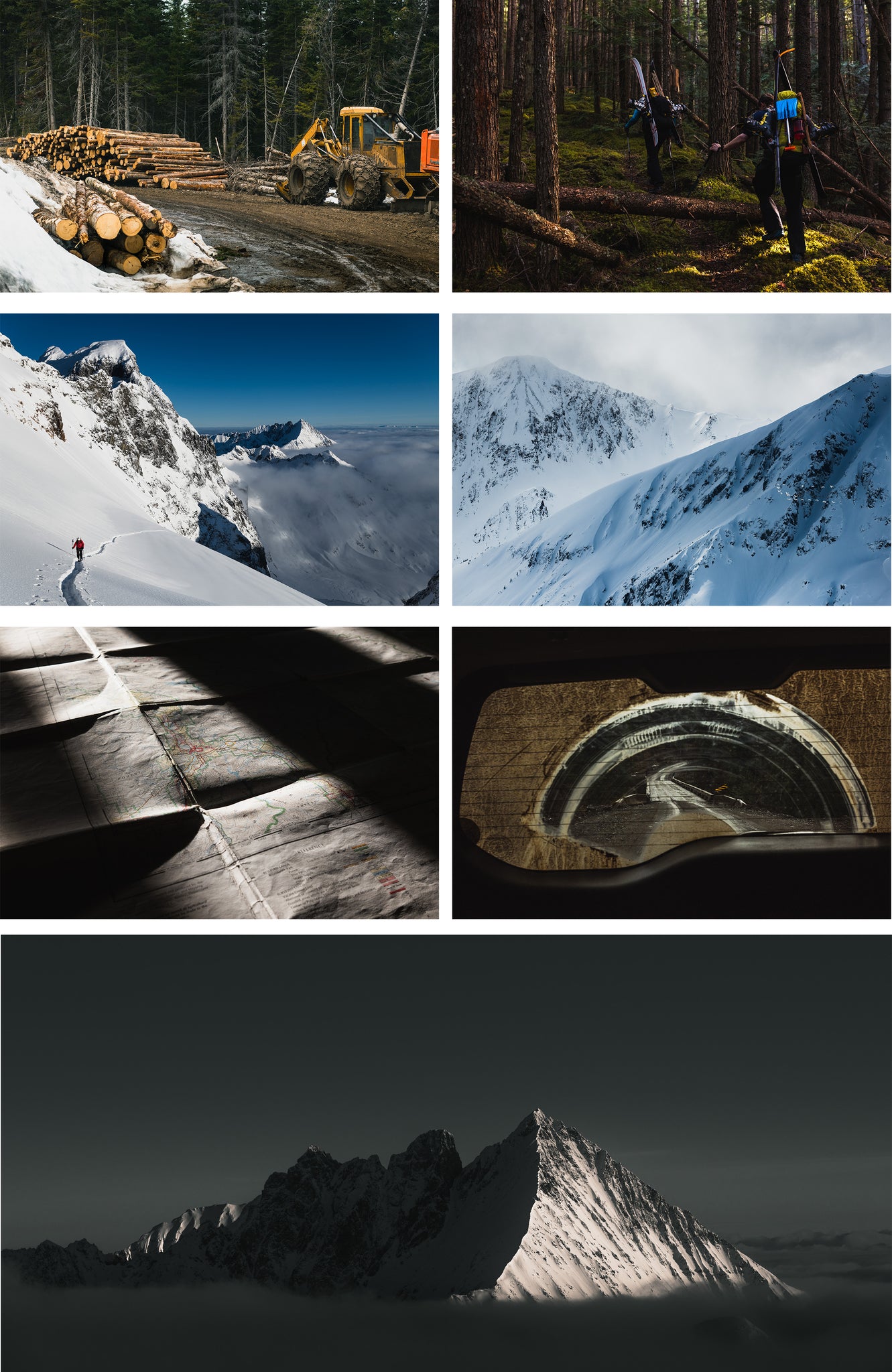
While Matthew manages to find the problem-solvers aiming for a common solution, he knows that the answers won’t reveal themselves overnight. “I don’t look for a final conclusion,” he explains. Instead, the core themes at the center of his stories – recreation, conservation, and access – function as a lens. “It’s a constantly evolving framework,” he says.
For Matthew, inquiry is a state of being – more about the process than an end goal – and we’re here for the ride. To explore more of Matthew’s captivating stories and striking captures, check out his website and follow @Matthew_Tufts on Instagram.

© Matthew Tufts for use by Renoun Skis



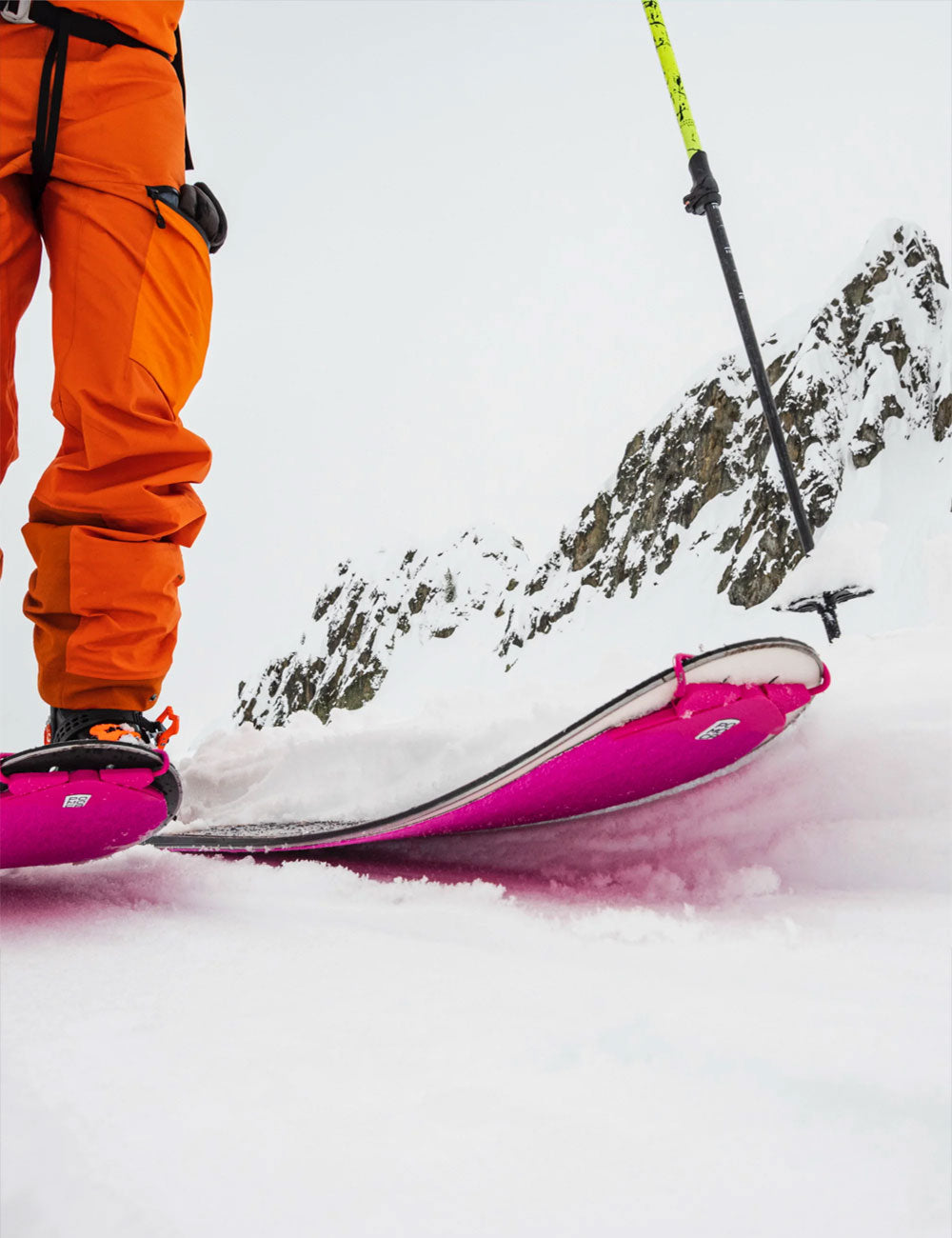
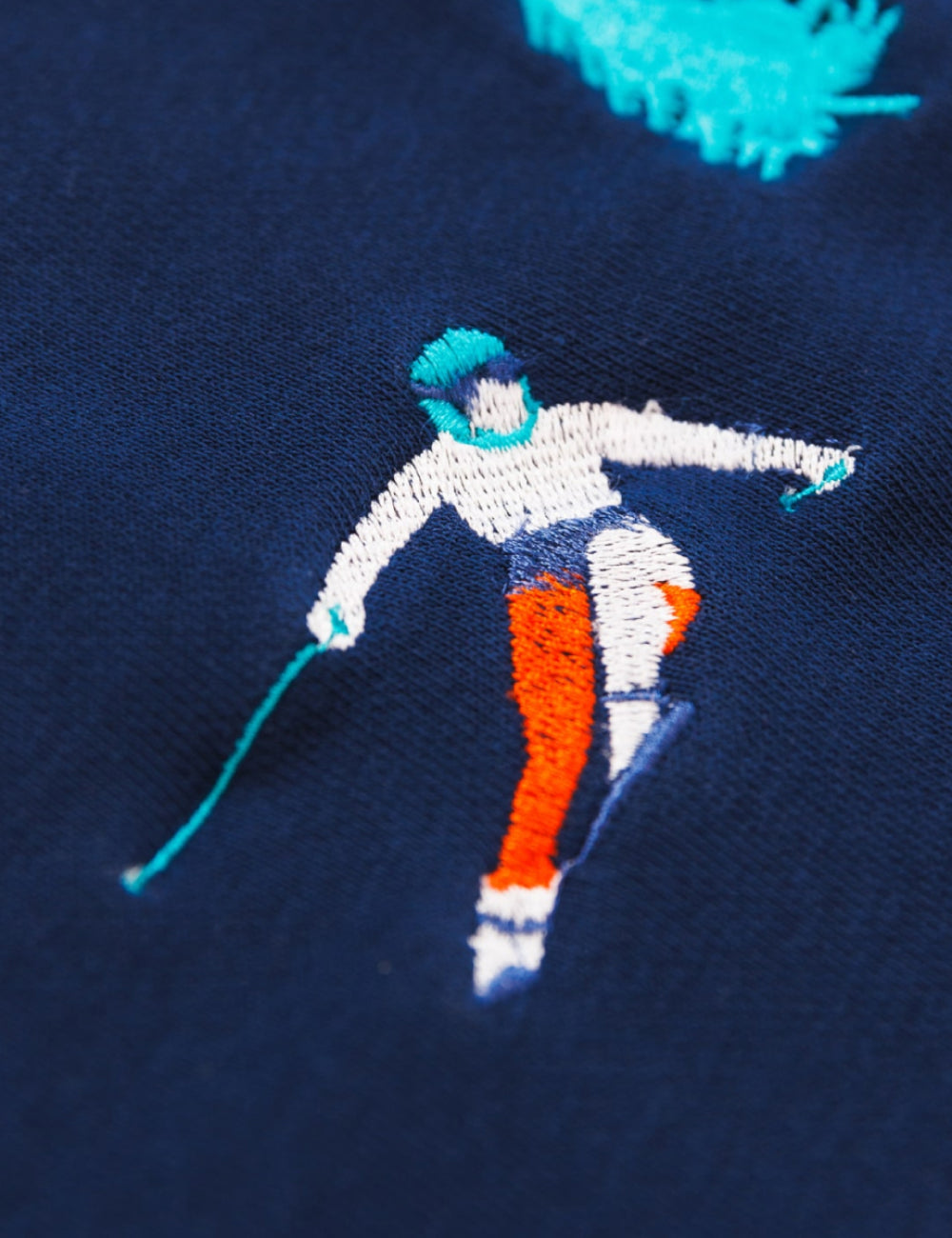
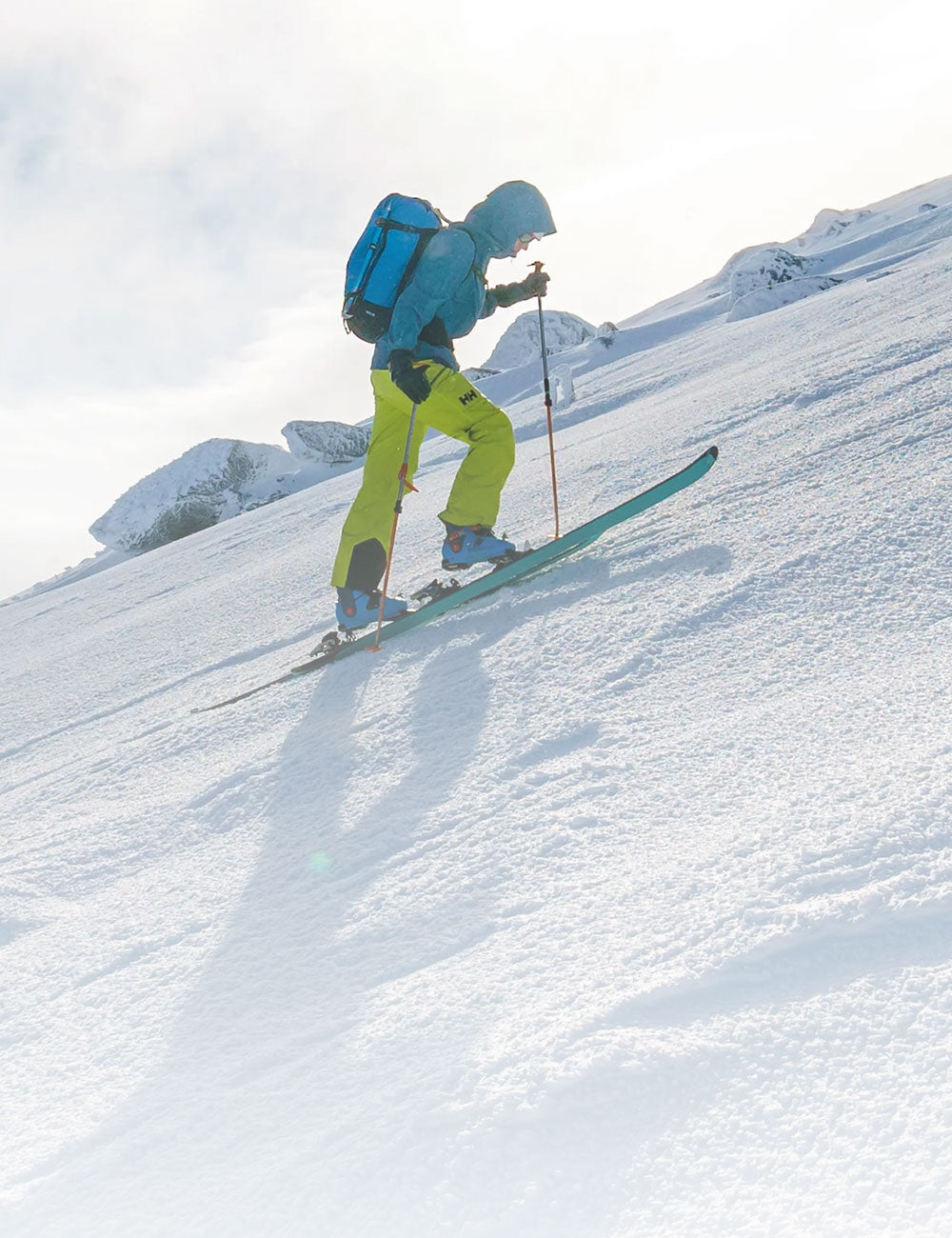

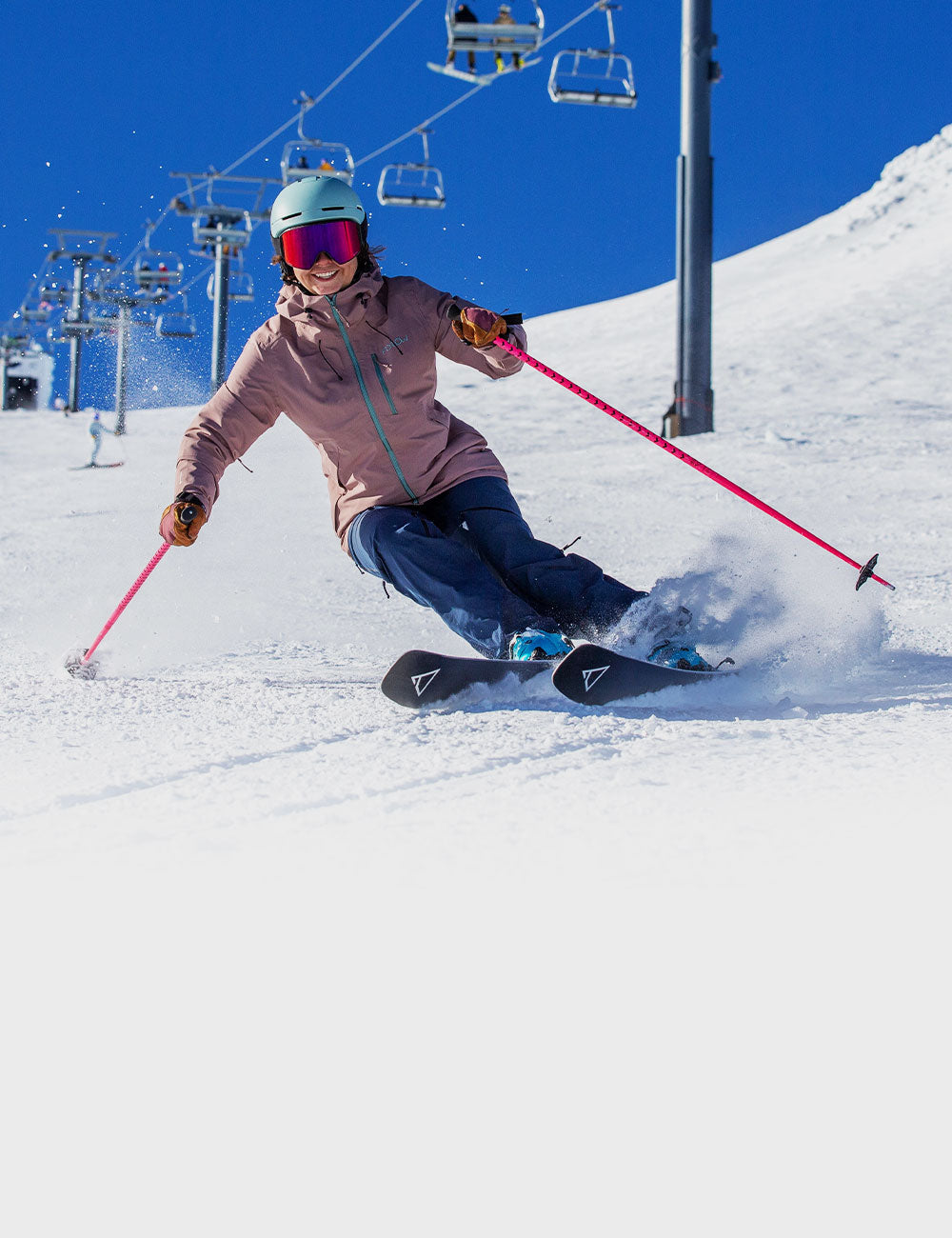
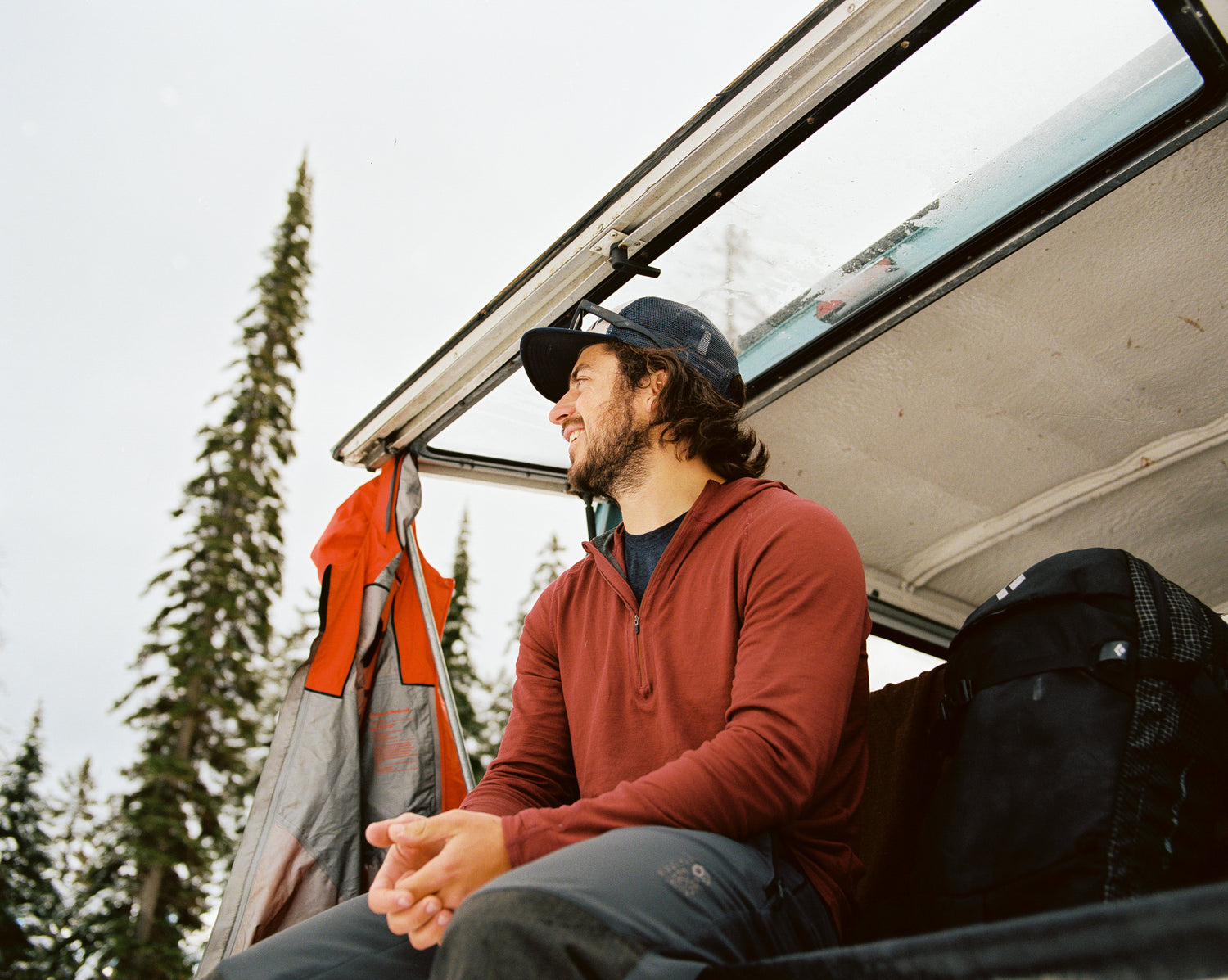


Leave a comment
This site is protected by hCaptcha and the hCaptcha Privacy Policy and Terms of Service apply.